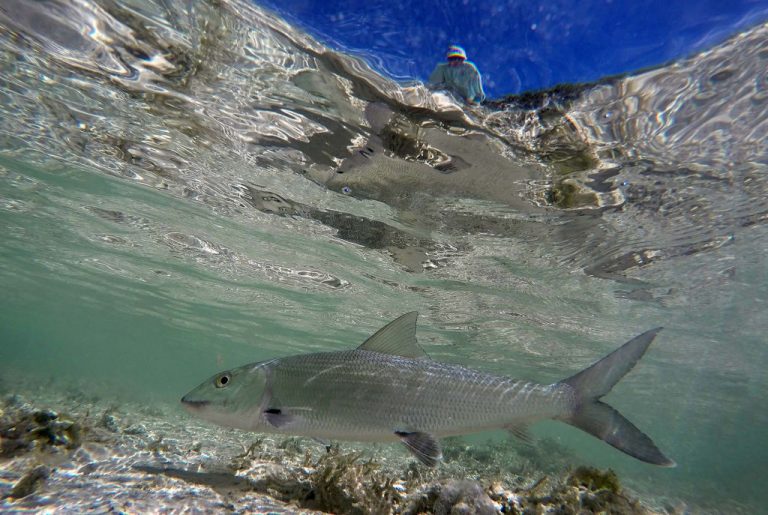Florida sea fish, on average, tested positive for seven types of medication like antidepressants, blood pressure remedies, prostate treatment pharmaceuticals, antibiotics, and pain killers, Florida International University (FIU) researchers found.
Investigators at the Bonefish and Tarpon Trust (BTT) teamed up with FIU scientists and tested 93 individual fishes, bonefish or tarpon—two species endemic to Floridian littoral waters.
Scientists took blood and tissue samples of the guineapig fish at two test sites in Biscayne Bay and the Florida Keys in a study running since 2018 and found traces of seven different types of medication on average in each of them.
READ MORE:
- 800 Tons of Dead Fish, Parched Crops and Threatened Livestock Have North Americans Scrambling for Solutions
- Avian Flu Sends US Egg Laying Chicken Flock To Lowest Levels Since 2015
- Worldwide Chemical Pollution Has Exceeded ‘Safe Operating Space’ for Human Life: Study
- World Has Only 10 Weeks of Wheat Supplies Remaining: Expert
One particular buddy tested positive on a staggering amount of 17 pharmaceuticals.
“These findings are truly alarming,” coastal and fish ecologist and associate professor at the University, Jennifer Rehaga, said at a presentation of the investigators’ report at a BBT meeting in Tallahassee.
Success
You are now signed up for our newsletter
Success
Check your email to complete sign up
“Pharmaceuticals are an invisible threat, unlike algal blooms or turbid waters,” the text continued.
“Yet these results tell us that they are a formidable threat to our fisheries and highlight the pressing need to address our longstanding wastewater infrastructure issues,” Rehaga concluded.
Researchers figured that the drugs must have ended up in the fishes’ bodies through human wastewater. The report said nearly 5 billion prescription drugs are handed out and taken every year in the U.S.
Florida’s fishing industry at risk
The contamination is not only a health issue for fish and a toxicological risk for consumers, it also has an economic downside to it.
“Coastal fisheries face increasing threats associated with human-based contaminants,” said Jim McDuffie, BTT President, and CEO, according to the report.
“Pharmaceuticals are an often overlooked dimension of water quality, and their presence in South Florida bonefish is cause for concern.” McDuffie continued.
“These contaminants pose a significant threat to the flats fishery, an important part of Florida’s recreational saltwater fishery, which has an annual economic impact of $9.2 billion and directly supports over 88,500 jobs.”
The study, which was co-sponsored by Sweden’s Umeå University and the University of Agricultural Sciences (SLU) also revealed many crab fish and prawns— typically prey fish that bonefish and tarpons feed on—are also heavily contaminated, which may have added to the problem.
Predator animals at the top of the food chain typically amass greater amounts of toxins because of the contaminated game they feed on.
Even in the case of small portions of drugs may have entered the animal’s system, they can already make a considerable impact on its life and behavior in terms of feeding habits, social behavior, and trekking patterns, the team found.
















